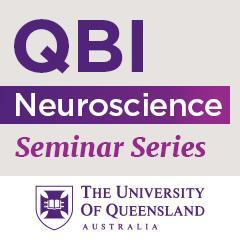Shanzhi Yan, UQ : "NMDA Receptors in the Neural Circuit Underlying Fear Learning"
Speaker:
Shanzhi Yan (PhD Exit Seminar)
Queensland Brain Institute, University of Queensland
Title: "NMDA Receptors in the Neural Circuit Underlying Fear Learning"
Abstract: N-methyl-D-aspartate (NMDA) receptor-dependent long-term potentiation is believed to be involved in many forms of learning and memory. In the Hebbian model of fear conditioning, NMDA receptors in the emotional processing circuit, especially in the basolateral amygdala (BLA), are considered as coincidence detectors that transform correlated conditioned and unconditioned stimuli into synaptic plasticity and long-term memory. However, it is unclear whether NMDA receptors are functional in the absence of correlated signal inputs. In the current project, we investigate the involvement of NMDA receptors in signal transmission in the BLA, as well as the storage of acquired associative memory in the emotional processing brain circuit. To investigate the role of NMDA receptors in signal transmission, we performed single unit recording in the BLA and recorded neural activity as well as acoustic responsivity before and after systemic injection of NMDA receptor antagonist (7)-3-(2-carboxypiperazin-4-yl)-propyl-1-phosphonic acid (CPP). Auditory stimulation triggered both excitatory and inhibitory responses in different subgroups of BLA neurons. CPP injection induced a shift in the balance between auditory stimulation-induced excitation and inhibition of BLA neuron in the inhibitory direction. Unit recording results also revealed that pyramidal cells in the LA excitatory recruit interneurons with the same tuning during tone presentations, and that inactivation of NMDA receptors impaired the pyramidal cells mediated recruitment of interneurons in the LA. To investigate the role of NMDA receptors in the formation of discriminative memory, rats received systemic CPP injection immediately after a discriminative auditory fear conditioning training. Inactivation of NMDA receptors after memory acquisition interfered with the consolidation and storage of both fear and safety memories. Intracerebral infusion of CPP directly into a series of brain regions after training showed that fear and safety memories were processed separately in different brain areas. It was likely that in addition to the BLA, fear and safety memories were also stored in the auditory cortical area and the prelimbic cortex, respectively. Together, our results suggested that in the absence of correlated extrinsic signals, NMDA receptors are still functional in processing intrinsic neural activities.
About Neuroscience Seminars
Neuroscience seminars at the QBI play a major role in the advancement of neuroscience in the Asia-Pacific region. The primary goal of these seminars is to promote excellence in neuroscience through the exchange of ideas, establishing new collaborations and augmenting partnerships already in place.
Seminars in the QBI Auditorium on Level 7 are held on Wednesdays at 12-1pm, which are sometimes simulcast on Zoom (with approval from the speaker). We also occassionally hold seminars from international speakers via Zoom. The days and times of these seminars will vary depending on the time zone of the speaker. Please see each seminar listed below for details.



